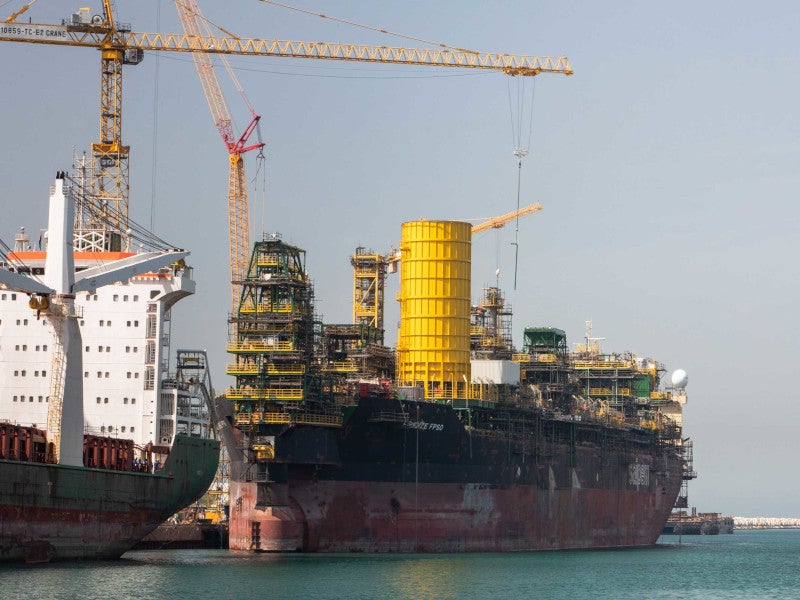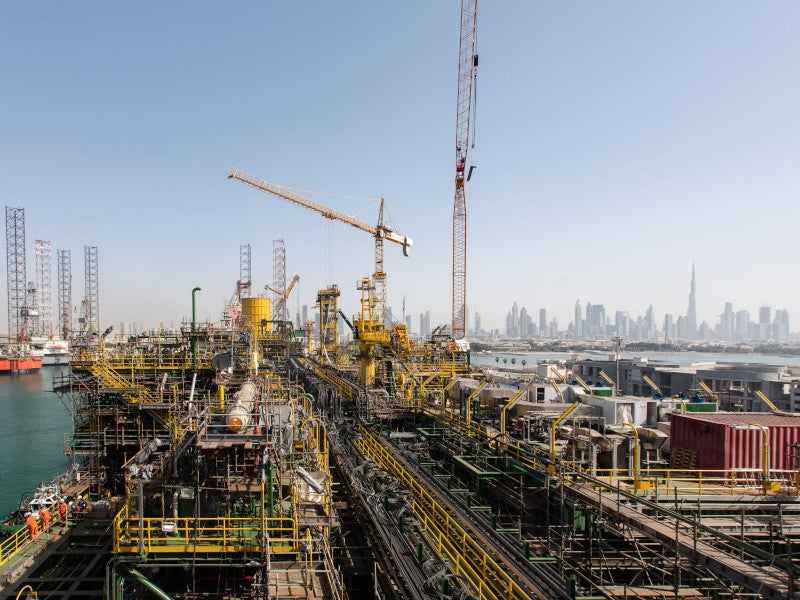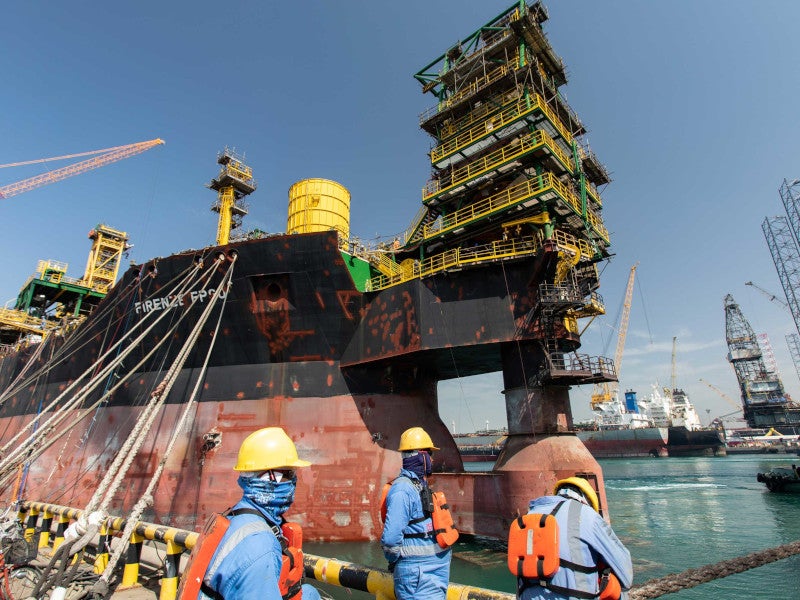Baleine is a deepwater oil and gas field being developed offshore Cote d’Ivoire (Ivory Coast), at a water depth of 1,200m. It is the largest hydrocarbon discovery and the first commercial discovery made in the West African country since 2001.
The Baleine field lies in Ivorian deepwater blocks CI-101 and CI-802 which are operated by Eni Cote d’Ivoire, a subsidiary of Italian multinational energy company Eni, with 90% interest. The Ivorian state-owned national oil and gas company Petroci holds the remaining 10%.
The final investment decision for the Baleine field development was made in December 2022, with the start of production expected in 2023.
Blocks CI-101 and CI-802
Block CI-101 lies at a water depth between 200m and 2,500m, approximately 50km south of Abidjan. Block CI-802 is located 80km southwest of Abidjan at a water depth between 2,000 and 2,700m.
Eni also owns interests in five other blocks in the Ivorian deepwater: CI-205, CI-501, CI-504, CI-401 and CI-801.
Baleine field geology and reservoir details
The Baleine field is located within the Deep Tano sedimentary basin of the Ivory Coast. It contains light oil in two different stratigraphic levels of the Santonian and Cenomanian/Albian ages.
The field is estimated to hold up to 2.5 billion barrels of oil and 3.3 trillion cubic feet of associated gas reserves.
Baleine field discovery details
The Baleine field was discovered by the Baleine 1X well, Eni’s first exploration well in Ivory Coast, in September 2021.
The Baleine 1X discovery well was drilled to a total depth of 3,445m (11,302ft) at a water depth of 1,200m (3,937ft) in block CI-101, using the Saipem 10,000 ultra-deepwater drill ship.
In July 2022, a second discovery well called Baleine East 1X was drilled in block CI-802, approximately 5km east of the Baleine 1X well.
The Baleine East 1X well was drilled to a total depth of 3,165m (10,383ft) at a water depth of 1,150m (3,772ft). The Saipem 12000 drill ship was used to drill the well.
Baleine East 1X encountered a continuous oil column of 48m in reservoir rocks. The production test confirmed the production of at least 12,000 barrels of oil and 14 million cubic feet (mcf) of associated gas a day from the well.
Baleine field development details
The Baleine project is being developed in phases, with production from phase one expected to begin in 2023. Phase two development of the field is expected to come on stream by the end of 2024.
Phase one will involve three production wells tied back to the Firenze floating production storage and offloading (FPSO) vessel. The FPSO was upgraded in Dubai and set sail for Ivory Coast in April 2023.
The oil from the FPSO will be loaded onto tankers, while the gas will be sent onshore to the Abidjan plant through a gas pipeline.
FPSO Firenze details
Eni acquired the Firenze FPSO from Saipem in December 2013. The FPSO vessel has a storage capacity of 700,000 barrels. It was deployed in the Aquila field operated by Eni in the Adriatic Sea, offshore Italy, until 2018.
The vessel has been upgraded to treat up to 15,000 barrels of oil and 25mcf of associated gas a day to support initial production at the Baleine field. It will be named as the Baleine FPSO after its commissioning in Ivory Coast.
Baleine field contractors involved
Saipem was awarded two contracts for the Baleine field development in September 2022. The first contract was for engineering, procurement, construction and installation services for the subsea umbilicals, risers and flowlines and an onshore gas pipeline for the project.
The second contract was for engineering, procurement, construction and commissioning services for the refurbishment of the Firenze FPSO vessel. The contract also included a ten-year operations and maintenance service agreement for the vessel.
Bakers Hughes was contracted to supply subsea production systems along with flexible flowline and riser systems and connectors for the Baleine field in the first quarter of 2022.




